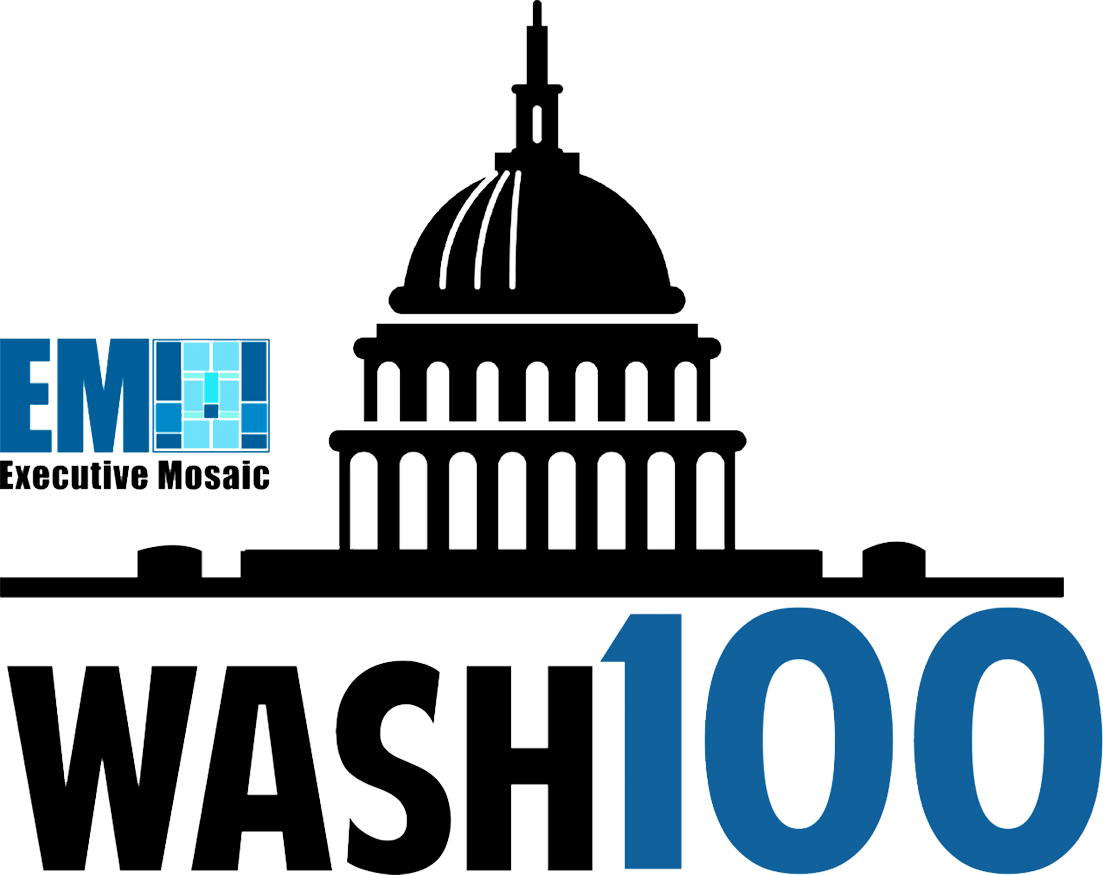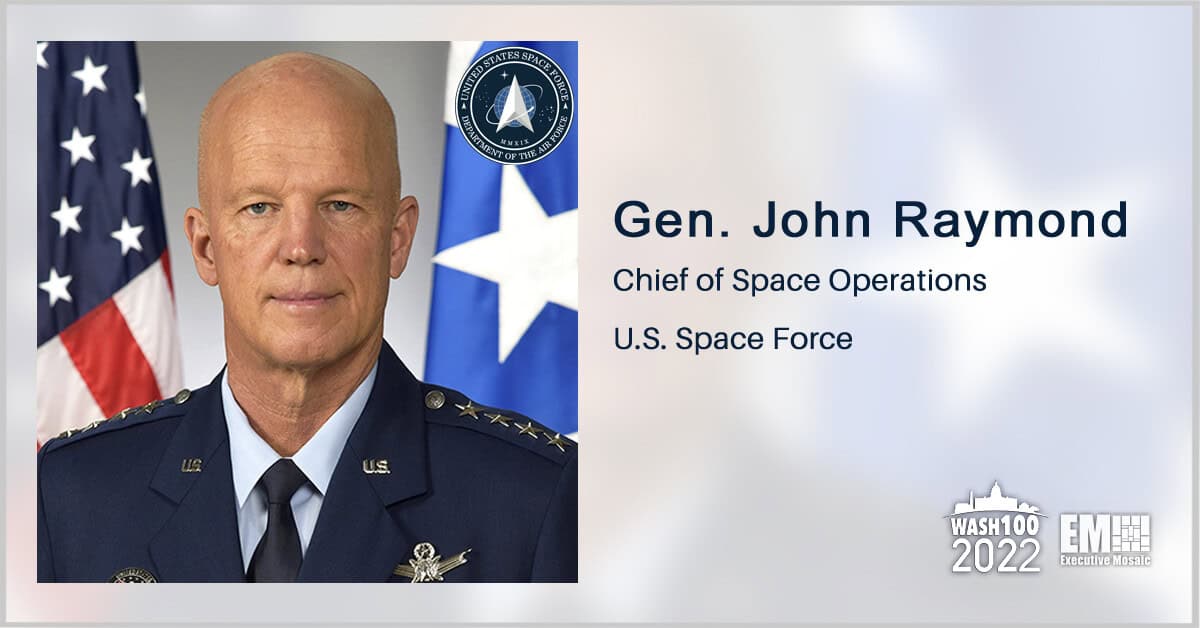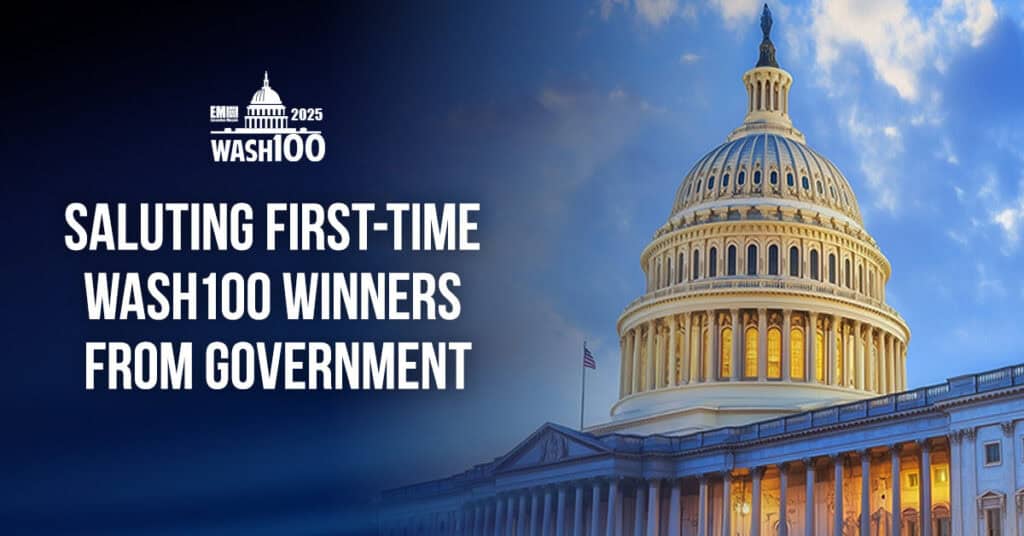Executive Mosaic is honored to name Gen. John Raymond, chief of space operations at the U.S. Space Force, as a recipient of a 2022 Wash100 Award, the most acclaimed award in all of government contracting (GovCon), for his leadership with the Space Force to expand the new service branch’s space intelligence capabilities and collaboration with industry and other military branches.
This marks Gen. Raymond’s third consecutive Wash100 Award win. Visit Wash100.com to cast a vote for Gen. John Raymond as one of your TEN votes to advocate for your favorite leaders in the federal and government sectors.
The Space Force started calendar year 2021 with its addition to the U.S. Intelligence Community and designation as the ninth Department of Defense component in the interagency group.
“Today, we took action to elevate space intelligence missions, tradecraft, and collaboration to ensure the success of the Space Force, the Intelligence Community, and ultimately our National Security,” said Raymond.
“This is a significant milestone, a clear statement that America is committed to a secure and accessible space domain. Our partnership will ensure the Space Force and the Nation remain always above any threat.”
Raymond acknowledges the key role of the industry in the Space Force’s missions. In early 2021, he said the service planned to further develop deeper relationships with the commercial industry and wanted the latter to play a bigger role in its missions.
“We want to build a very fused connection with commercial industry. We’re a small service and we think we can do that,” he said at a symposium. “The explosion of commercial space … provides us a great opportunity.”
He said that the Space Force is accelerating efforts to meet its near-term priorities and seeks to “move at speed” by working with the joint force, interagency and industry partners and allies.
In March 2021, Raymond said the Space Force was working on a declassification strategy to help facilitate integration across the joint forces and with international partners.
“The main mission of the United States Space Force is to deter conflict from beginning or extending into space, and I’m convinced that if you want to change the deterrence calculus, if you will, of an adversary, you have to be able to communicate. If you have everything classified, that really limits your ability to deter conflict,” said Raymond.
He noted that the service was also working to improve integration with commercial partners by providing them more access to classified data.
“You’ll see us as we develop new programs and review older programs, review it with a lens of deterrence and a lens of integration. And so you’ll see us continue to make classification decisions that will enable that deterrence and that integration,” added Raymond.
At a virtual conference hosted in September 2021, Raymond said microelectronics and advanced propulsion can enable small satellites that can be fielded in large numbers while having the computing power to rapidly transmit data.
“In low Earth orbit, you don’t get that persistence so you get that persistence by adding numbers,” said Raymond. “We want to be able to capitalize on that.”
He noted that the Space Force seeks to closely coordinate with intelligence sector partners to explore the use of tactical satellite imaging and that his office has started efforts to assess potential design concepts for satellite-based beyond-line-of-sight targeting.
“I do think as technology has allowed for smaller satellites to be more operationally relevant and you can do so at a price point that is cheaper, that there is a role for operational level tactical satellites as you described and that the Space Force would have a role in that,” noted Raymond.
In April 2021, the Space Force unveiled the organizational framework for its new Space Systems Command, which will identify, prototype and deploy space-based platforms to expedite the delivery of space capabilities to meet the requirements of the National Defense Strategy.
“Space Systems Command’s organizational structure was purpose-built to anticipate and be responsive to the challenges presented by a contested space domain,” Raymond said.
The following month, the Space Force issued its vision document detailing its aim to become the world’s first fully digital service. Raymond said then that digitalization is key to the service branch because missile warning, position, navigation and timing, domain awareness and all other mission areas rely on data and analysis.
“This is a really important document for our service,” he said during a media call. “The establishment of the U.S. Space Force gives us a generational opportunity to create a service that is purpose built for a very unique operating environment. And when you think about our strategic competitors and the threats that we currently face, becoming a digital service is much more than an opportunity ― it’s a necessity.”
In September, Raymond announced that the Space Force will be responsible for U.S. Army and U.S. Navy satellite communications missions, funding and billets.
"The intent was to consolidate (and) increase our operational capability; increase our readiness and do so in a more efficient manner,” he said of the move.
In November, the Space Force, Defense Innovation Unit and the Air Force Research Laboratory jointly released the 2021 State of the Space Industrial Base Report, which sought to inform the National Space Council, other government stakeholders and investors on space’s relevance to U.S. infrastructure, manufacturing, climate change, workforce and foreign policy.
The report included several recommendations for the government, including the creation of an inclusive cislunar economy, establishment of a space internet and development of a space superhighway for logistics.
“Our security and resilience in space is critical for our democracy-based world order in the future,” said Raymond. “The recommendations, if followed, have the power to unite and unleash the full innovation, technological and industrial capability of the U.S. and the benefit of all humanity.”
Executive Mosaic congratulates Gen. John Raymond and the Space Force on his 2022 Wash100 Award selection. Visit Wash100.com to vote for Gen. John Raymond and who you believe deserves the recognition as the most significant leader to the GovCon community and federal landscape.





